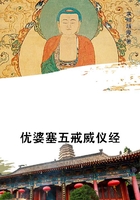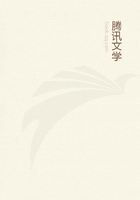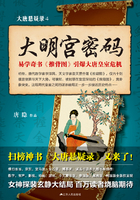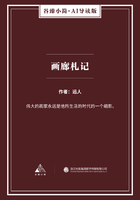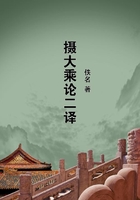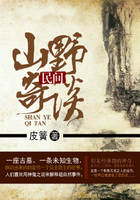Personality In the character of these States, whether republics or despotisms, lies, not the only, but the chief reason for the early development of the Italian.To this it is due that he was the firstborn among the sons of modern Europe.
In the Middle Ages both sides of human consciousness--that which was turned within as that which was turned without-- lay dreaming or half awake beneath a common veil.The veil was woven of faith, illusion, and childish prepossession, through which the world and history were seen clad in strange hues.Man was conscious of himself only as a member of a race, people, party, family, or corporation--only through some general category.In Italy this veil first melted into air; an _objective _treatment and consideration of the State and of all the things of this world became possible.The subjective side at the same time asserted itself with corresponding emphasis; man became a spiritual _individual, _recognized himself as such.In the same way the Greek had once distinguished himself from the barbarian, and the Arab had felt himself an individual at a time when other Asiatics knew themselves only as members of a race.It will not be difficult to show that this result was due above all to the political circumstances of Italy.
In far earlier times we can here and there detect a development of free personality which in Northern Europe either did not occur at all, or could not display itself in the same manner.The band of audacious wrongdoers in the tenth century described to us by Liudprand, some of the contemporaries of Gregory VII (for example, Benzo of Alba), and a few of the opponents of the first Hohenstaufen, show us characters of this kind.But at the close of the thirteenth century Italy began to swarm with individuality; the ban laid upon human personality was dissolved; and a thousand figures meet us each in its own special shape and dress.Dante's great poem would have been impossible in any other country of Europe, if only for the reason that they all still lay under the spell of race.For Italy the august poet, through the wealth of individuality which he set forth, was the most national herald of his time.But this unfolding of the treasures of human nature in literature and art--this many-sided representation and criticism--will be discussed in separate chapters; here we have to deal only with the psychological fact itself.This fact appears in the most decisive and unmistakable form.The Italians of the fourteenth century knew little of false modesty or of hypocrisy in any shape; not one of them was afraid of singularity, of being and seeming unlike his neighbors.
Despotism, as we have already seen, fostered in the highest degree the individuality not only of the tyrant or Condottiere himself, but also of the men whom he protected or used as his tools--the secretary, minister, poet, and companion.These people were forced to know all the inward resources of their own nature, passing or permanent; and their enjoyment of life was enhanced and concentrated by the desire to obtain the greatest satisfaction from a possibly very brief period of power and influence.
But even the subjects whom they ruled over were not free from the same impulse.Leaving out of account those who wasted their lives in secret opposition and conspiracies, we speak of the majority who were content with a strictly private station, like most of the urban population of the Byzantine empire and the Mohammedan States.No doubt it was often hard for the subjects of a Visconti to maintain the dignity of their persons and families, and multitudes must have lost in moral character through the servitude they lived under.But this was not the case with regard to individuality; for political impotence does not hinder the different tendencies and manifestations of private life from thriving in the fullest vigor and variety.Wealth and culture, so far as display and rivalry were not forbidden to them, a municipal freedom which did not cease to be considerable, and a Church which, unlike that of the Byzantine or of the Mohammedan world, was not identical with the State--all these conditions undoubtedly favored the growth of individual thought, for which the necessary leisure was furnished by the cessation of party conflicts.The private man, indifferent to politics, and busied partly with serious pursuits, partly with the interests of a _dilettante, _seems to have been first fully formed in these despotisms of the fourteenth century.Documentary evidence cannot, of course, be required on such a point.The novelists, from whom we might expect information, describe to us oddities in plenty, but only from one point of view and in so far as the needs of the story demand.Their scene, too, lies chiefly in the republican cities.
In the latter, circumstances were also, but in another way, favourable to the growth of individual character.The more frequently the governing party was changed, the more the individual was led to make the utmost of the exercise and enjoyment of power.The statesmen and popular leaders, especially in Florentine history, acquired so marked a personal character that we can scarcely find, even exceptionally, a parallel to them in contemporary history, hardly even in Jacob van Arteveldt.
The members of the defeated parties, on the other hand, often came into a position like that of the subjects of the despotic States, with the difference that the freedom or power already enjoyed, and in some cases the hope of recovering them, gave a higher energy to their individuality.Among these men of involuntary leisure we find, for instance, an Agnolo Pandolfini (d.1446), whose work on domestic economy is the first complete programme of a developed private life.
His estimate of the duties of the individual as against the dangers and thanklessness of public life is in its way a true monument of the age.


